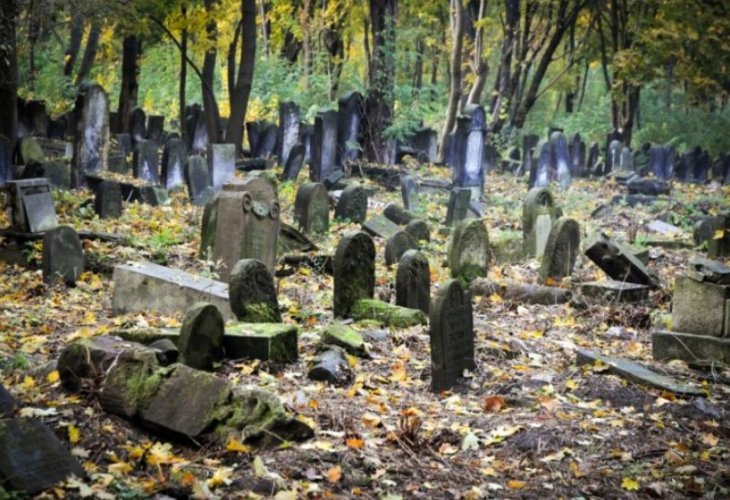Personal Stories
A Law That Saved Lives: Rabbi Feinstein’s Halachic Wisdom
How one rabbi’s deep commitment to halacha protected an entire Jewish town from danger
 Jewish cemetery in Poland (Photo: shutterstock)
Jewish cemetery in Poland (Photo: shutterstock)A powerful story about the great Torah scholar Rabbi Moshe Feinstein shows that keeping mitzvot (commandments) and staying true to halacha (Jewish law) never brings harm. In fact, sometimes it brings unexpected salvation.
This story took place around 100 years ago, when Rabbi Feinstein was serving as a rabbi in a town in Russia. At that time, one Jew in the community had become an informer. He reported other Jews to the KGB, the terrifying Soviet secret police. Jews who were taken by the KGB often returned broken in body and spirit if they came back at all. The entire town lived in fear because of this man.
Eventually, the informer became sick and died. But before his death, he left a letter for the Chevra Kadisha, the Jewish burial society. In the letter, he admitted his regret and asked to be buried in a disgraceful way outside the cemetery, in a manner that would humiliate him. He believed this would help atone for the terrible suffering he had caused.
The Chevra Kadisha was unsure what to do. His request clearly went against halacha, which teaches that every Jew must be buried with dignity, no matter what they did in life. So they turned to Rabbi Moshe Feinstein to ask how they should handle this unusual situation.
Rabbi Feinstein listened carefully and answered clearly: “According to halacha, a person doesn’t own their body it ,belongs to Hashem. So they can’t decide what should happen to it after death. We are obligated to bury him as we would bury any other Jew.”
The Chevra Kadisha members were surprised. “But this man begged for this kind of burial,” they said. “He wanted it as a way to atone for his sins. Shouldn’t we honor that?”
Rabbi Moshe answered, “Our job is not to make emotional decisions. Our job is to follow halacha. That’s my role as a rabbi. Heaven will take care of judging his soul and determining what kind of atonement he needs. But we must stick to the path the Torah gives us.”
The Chevra Kadisha accepted Rabbi Feinstein’s ruling and buried the man respectfully, just like every other Jew.
A few days later, the cemetery guard noticed something strange. A group of government officials came to the cemetery and asked to see the grave of the informer. The guard showed them the spot, and they opened the grave, examined it for a moment, and then closed it again.
The guard was confused and asked what they were doing. One of the officials explained that the informer had sent them a letter before his death. In the letter, he wrote: “Since the Jews in my town hate me for being loyal to the government and informing on them, they will surely bury me like a donkey, without respect. I ask you to check and make sure they don’t.”
So the officials came to check. But instead of finding a dishonorable burial, they found that the man had been buried exactly according to Jewish law with dignity and care.
When the cemetery guard told the story in the synagogue, the entire town was amazed. It became clear to everyone that only because Rabbi Feinstein had insisted on following halacha despite the emotional pressure to do otherwise, the town was saved from a potential disaster. If they had buried the man shamefully, the officials might have punished them all. Instead, their loyalty to halacha protected them.
Rabbi Moshe Feinstein, who passed away on the 13th of Adar 5746 (1986), was one of the greatest halachic authorities after the Holocaust. He served as the head of the Tiferet Yerushalayim Yeshiva in New York and was the chairman of the Council of Torah Sages (Moetzes Gedolei HaTorah) of Agudath Israel of America. His deep commitment to Torah and halacha continues to inspire Jews around the world.

